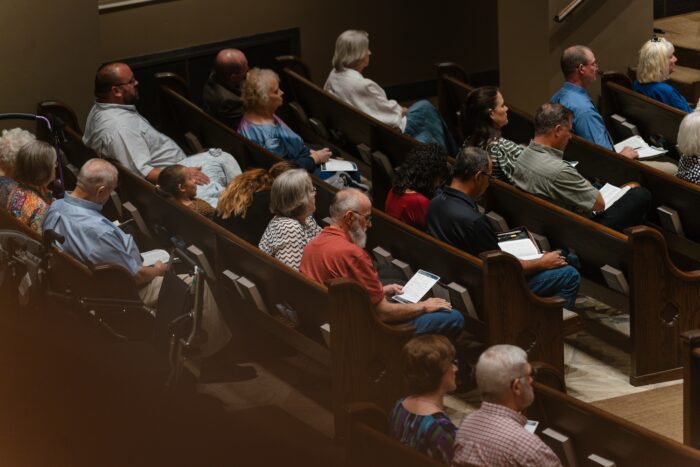It was Wednesday, January 2, my first ministry position after completing my M.Div. degree. I was assigned a six-foot by six-foot cubicle in the workroom as my office, complete with a desk, a chair, and one bookcase. After getting my office space set up, which took less than an hour, I then sat there and thought, “Now what do I do?” After three years of study, I was no longer in the “laboratory” of the classroom, but in the “real world” of ministry. Did all of the work for my M.Div. degree actually train me for ministry? Actually, yes. Was there much more for me to learn on the job in the local church? Again, yes, and I noticed that what I could only learn on the field was dependent on what I gained from my M.Div. degree. I entered the world of Single Adult Ministry, for which there is no course at seminary and no manual or ready-made format to follow. Other than the Lord and the Scriptures, I had nothing to rely on except for my seminary education and what valuable lessons I had gained from church ministry during my years in seminary. This proved sufficient. I served as single adult minister at that church for two and a half years, then for a little over 14 years at another church, where I also served as the missions minister.
Most people know that seminary cannot prepare you for everything you will face in ministry. It cannot do this, nor does it claim to do so. So, what is the value of your seminary education? And how does it benefit your church? There are two major issues I would point out. The first major value of your seminary education is that it provides you with the necessary biblical and theological foundation for ministry, no matter the role: pastor, youth minister, missionary, church planter, etc. One cannot assume that the men and women coming to seminary already have a sound theological foundation or know how to handle the Scriptures. Having read a textbook or two is not enough to build the kind of theological foundation necessary for all of the issues one will face in a ministry context. Similarly, having a shelf full of commentaries does not mean that you know how to “rightly divide the word of truth.” There is a biblical-theological foundation that must be laid upon which you do the work of the ministry. This is easy to see in the preaching and teaching ministry of the ministry, but it is equally important in the other areas of ministry that seem more mundane.
Let me mention a couple of examples. One of the most significant aspects of the ministry is the various forms of counseling that take place: personal spiritual issues, pre-marital, marital, crisis, etc. Biblical exposition and theology will have a major role to play in this. As a single adult pastor, I did quite a bit of spiritual counseling and pre-marital counseling. In both situations, people needed to understand the clear teaching of Scripture, rightly understood and applied, based on solid orthodox theology. To give counsel that strays from fidelity to Scripture or theological truth is to betray the people and risk damaging their souls.
This applies to missions involvement as well. Your seminary education will provide you with a biblical-theological foundation for understanding the nature, purposes, and ministries of the church. The goal of the education is to give you integrated training so that you see the bigger picture of the church and its ministry. There are many things that sound like something worth supporting. But your biblical-theological foundation asks some fundamental questions: Does it contribute to evangelism and disciple-making? Furthermore, how will you serve in this mission opportunity? What is your role and does it contribute to the kingdom of God? The same can be said about the education ministry of the church. The same biblical-theological foundation will determine how you teach the various groups in the congregation. This includes the significantly important Sunday morning Bible study hour but also goes beyond this. Teaching and training our children, our youth, our young adults, and even our older adults (of which I am one) will be determined by the biblical-theological foundation that we seek to establish here at Southwestern Seminary. Thus, one of the most important things we do as a seminary faculty is to serve the churches by providing those serving in ministry with a foundation that is biblical, historically orthodox, and uniquely Baptist.
The second important aspect of your seminary education is giving you the tools you need to build on this foundation, and the training to know how to use these tools. Mention has been made above about several aspects of the church’s ministry – preaching, teaching, counseling, education, and missions. But how do you build on this foundation? You need to know what tools you have to work with and how to use them. For example, your Old and New Testament survey courses are seeking to do more than simply cover each book of the Bible. Your professors are also training you to see the underlying unity of the whole Bible, teaching you Hebrew and Greek for the sake of the church’s instruction, and training you in hermeneutics so that you handle the Scriptures correctly.
Your theology professors seek to do the same thing. Essential to the task of theology is knowing how to build theology on the Scriptures. We also seek to do more than teach isolated theological loci but to teach you the method of doing theology and how the doctrines are integrated together. With this training, you will be equipped to help your church respond to the challenges it faces, which will be different in ten years than they are today. Your preaching professors train you in how to communicate the Scriptures so that the church will both understand the Bible and practice it. Your mission and evangelism professors teach you methods of evangelism and strategies of missions, again, so that the church will practice these things well and according to its biblical and theological foundation. The same will hold true of learning the basic models of disciple-making, of the broader issues facing family ministry, children’s and student ministries, and the principles and elements that go into a worship service. Believe it or not, this is why you do research papers, exegetical papers, and prepare sermons to be evaluated – to train you in using these tools.
There is much more that could be said, but this suffices to demonstrate how your church benefits from your seminary education. Whatever your role is in the church, on the mission field, or in a parachurch ministry, God’s people are looking to you for guidance and leadership. Having been grounded in a strong biblical-theological foundation and having been given the necessary tools and training in using those tools, your church benefits significantly in (1) understanding and doing the Word of God and (2) working for the sake of His Kingdom. In this they are then trained to do the work of the ministry.








